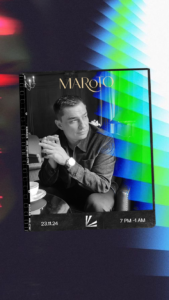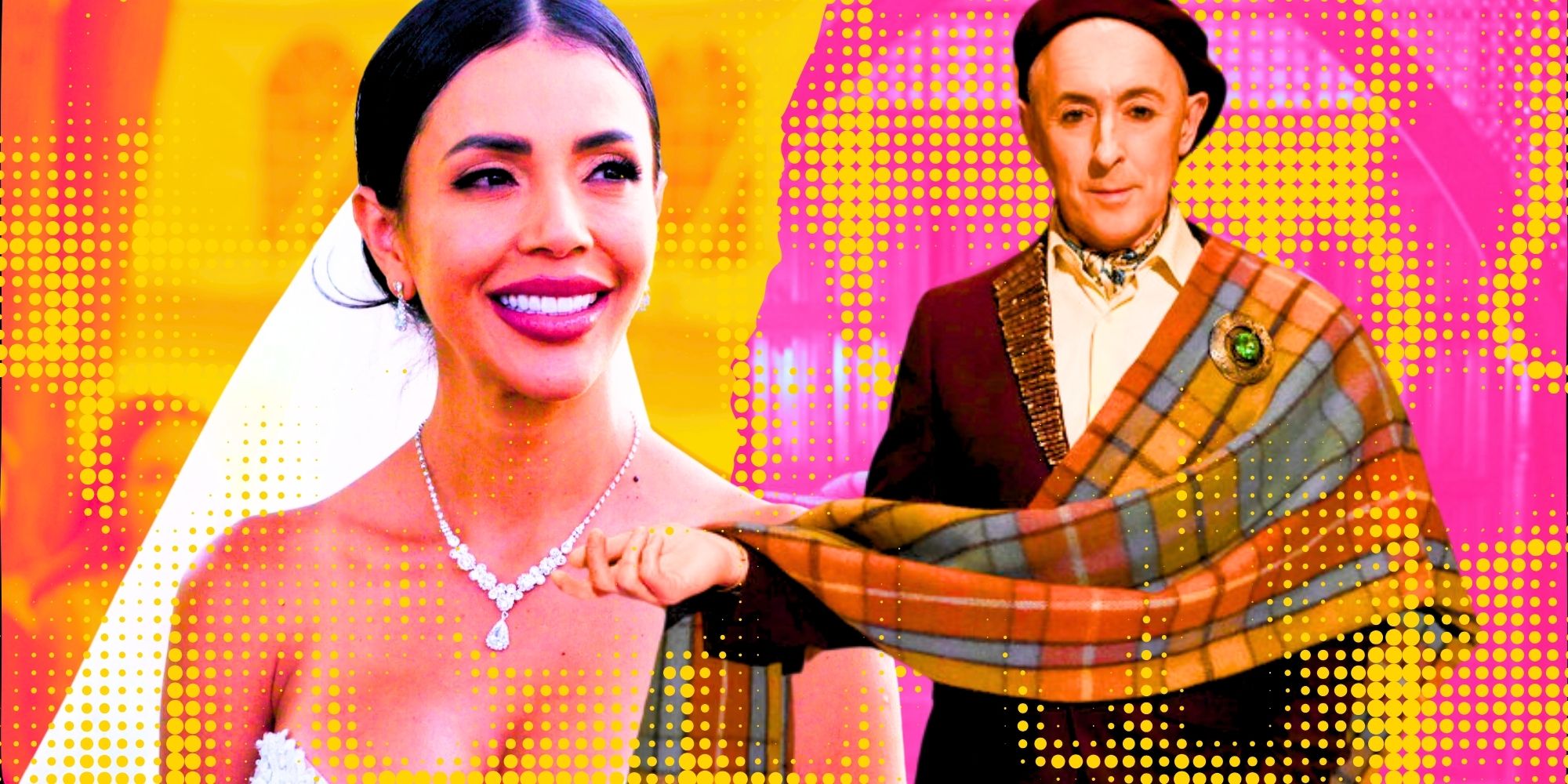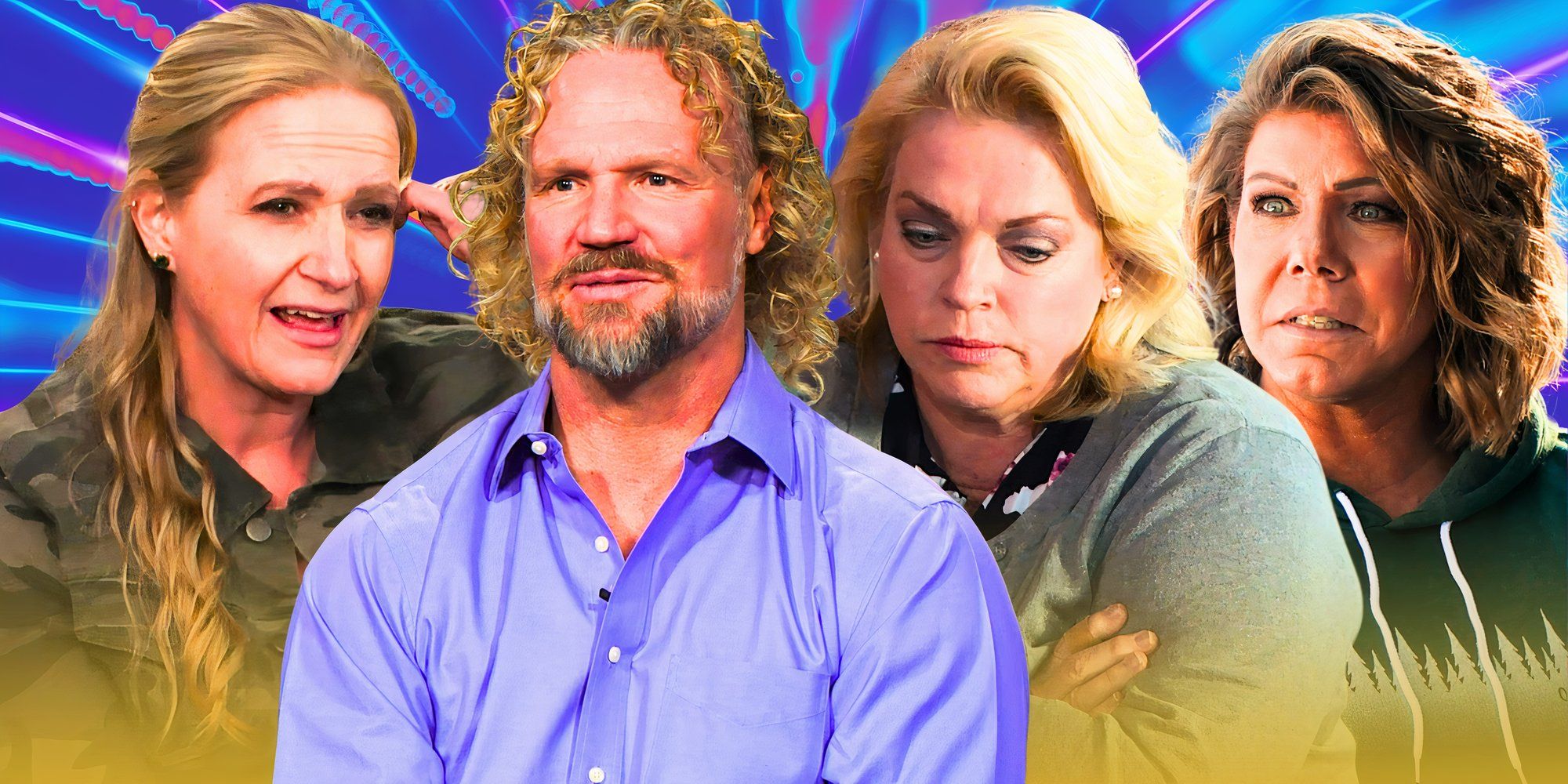She falls over in public, a lot, hitting the deck twice in the first episode alone – once on the school coach in front of her peers while en route to London Fashion Week, before stacking it again shortly after arriving, dragging an entire display of headpieces down with her.
Without warning, her nickname “Hats” suddenly takes on a whole new unfortunate meaning.
But even when she’s not engaging in unintentional physical comedy or donning a spider costume for a meeting with a top model agency, Harriet can’t help but stand out.
Academically, she’s light-years ahead of her classmates, mastering every subject with ease and winning every scholastic competition she enters. Harriet also freely acknowledges that her social skills are “non-existent”, with casual conversation often replaced by spouting the many fascinating facts she’s hoovered up while her peers are distracted by social media and school gossip.
There’s no one quite like Harriet Manners, but rather than wearing her difference with pride, it is the albatross around her neck.

Even when she swaps physics for photoshoots and catwalks, she cannot escape Lexi’s taunts, Poppy’s sneers or Jude’s judgement.
“I haven’t changed my life at all,” she says after another setback leaves her completely at a loss once more, the little confidence she had gained evaporating instantly.
Harriet internalises her perpetrators’ disdain and, in turn, it becomes her own. And however far or fast she runs, the way she perceives herself is dictated by how others define her.
That takes on a particularly sinister and distressing dimension when you consider that Harriet is autistic. It isn’t something that’s explicitly stated in the series, but it’s alluded to in a conversation between fashion agent Wilbur and her dad Richard, who is reticent to give his daughter a label for fear of restricting her.
Harriet moves through the world differently because she is different, and although there are ways of managing her disability, which isn’t without its benefits, she cannot change that fact. Unlike so many of her peers, who can morph into any number of different forms depending on the time or place, Harriet cannot pretend to be something she is not, however hard she wills it.
“I’m going to run away,” she says initially, before changing her mind.
“Is that who I really want to be? Be brave, Harriet. You are brave. You’re part T rex.”
But those same old fears rush in and she’s carried away on the tide of her emotions.
She then curtsies, before scuttling off, heels in hands. A few moments later, she’s squirrelled away behind a curtain as she sobs her heart out.
In the finale, however, following multiple setbacks, several heartfelt conversations with those who champion her, and numerous moments of self-reflection, there’s a marked shift.

Poppy attempts to sabotage Harriet’s runway return by covertly attaching a sign to her back that reads ‘geek’, which momentarily derails Yuji Lee’s latest dazzling display. As she notices the crowd whispering the very word that has been weaponised against her all her life, Harriet falters.
“Maybe they’re right,” she says, her anxiety building as she once again questions her place in the world. “Maybe I don’t belong here after all.” But this is not the Harriet Manners we were first introduced to. This is not the girl who kept a detailed list of everyone who hated her, a list which also included her own name.
No, this version of Harriet Manners has shown the world exactly who she is, time and time again, and she’s not only still standing, she’s more brilliant and vibrant than ever.
“I’m different,” proclaims Harriet, both acknowledging her own singularity, and the metamorphosis that she has undergone. She is owning her difference and reclaiming the word ‘geek’ from her oppressors.
And that’s even more impactful given the absence of a reaction when Nick informs her that Poppy’s scheme is responsible for distracting the crowd.
Whether the audience were labelling her a ‘geek’ or simply reading the piece of paper attached to her dress, Harriet is unmoved either way. It’s irrelevant because she now understands that the only person that really matters to Harriet Manners, is Harriet Manners.
Geek Girl began as one teenager’s journey to change her life, and there’s no denying things are different. Harriet’s face is now plastered on giant screens in central London, and she’s dating The Nick Park.
But the nuts and bolts that maketh the woman are still very much the same. There’s no change there, thankfully, and Harriet has stopped trying to tinker, at least for now (she will, of course, have wobbles if the show does return) as she learns to embrace who she is for the first time in a very long time – something that Holly Smales, the writer of the show and the books on which it’s based, wants you to hold onto.
Whether you’re neurodivergent, as Harriet is, or doing your level best to blend in, whether you’re 16 or 60, don’t. Geek Girl wants you to come as you are, because sometimes, “to change your life, you have to stand out”.
All ten episodes of Geek Girl are available to stream now on Netflix – sign up from £4.99 a month. Netflix is also available on Sky Glass and Virgin Media Stream.
Check out more of our Drama coverage or visit our TV Guide and Streaming Guide to find out what’s on. For more from the biggest stars in TV, listen to The Podcast.









